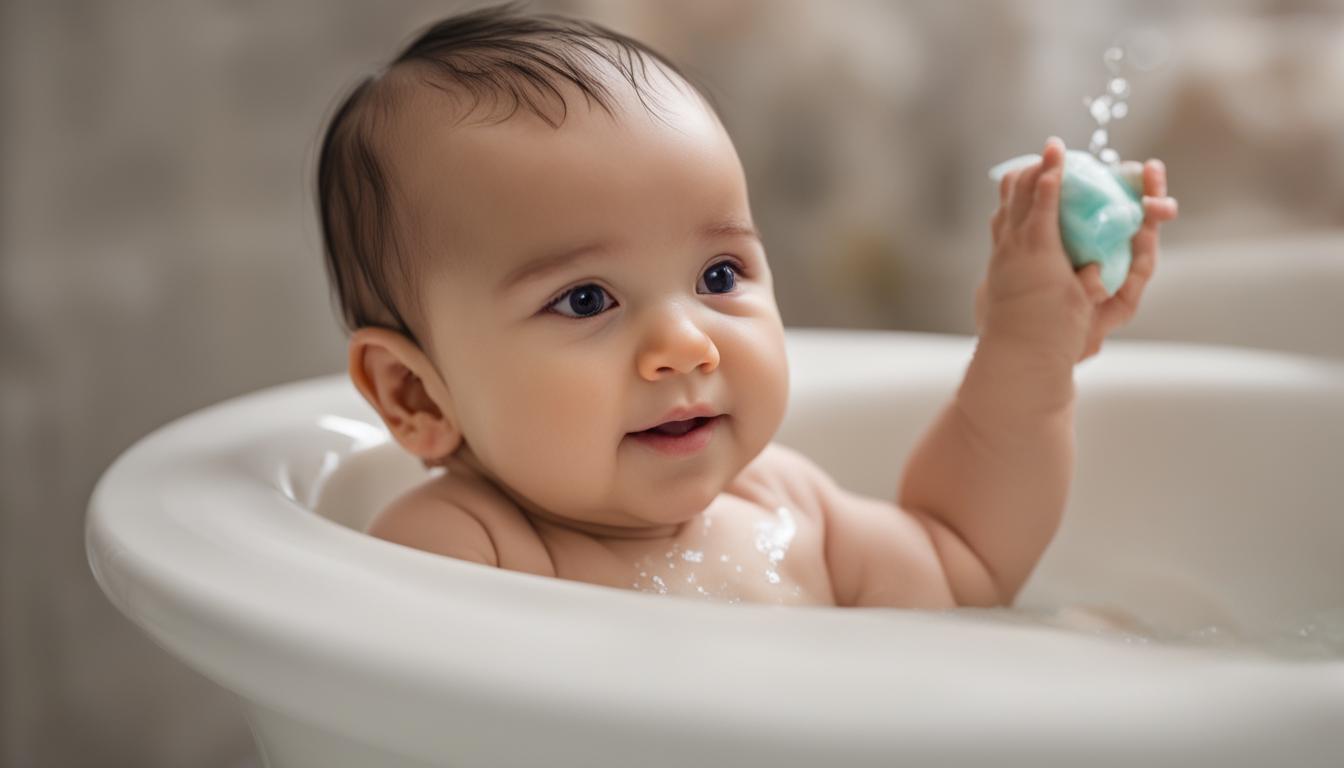Table of Contents
ToggleIntroduction
As a parent, you may be wondering how often you should bathe your baby with eczema.
Bathing plays a crucial role in the care of babies with eczema, as it helps to clean the skin and prepare it for the application of creams after the bath.
Establishing a regular eczema care routine that includes bathing can be beneficial for your little one’s skin health.
When it comes to bathing frequencies for eczema, doctors generally suggest giving your baby a bath every day.
Daily baths can help to add moisture to dry skin and remove bacteria that can potentially cause infections.
However, it is important to note that each baby’s skin is unique, and some babies may benefit from less frequent bathing.
Consulting with a healthcare professional can help determine the most appropriate bathing frequency for your baby’s specific condition.
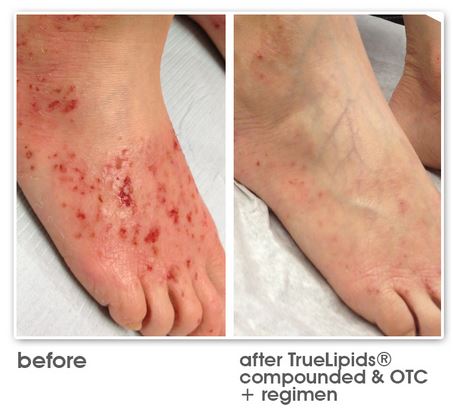
Key Takeaways:
- Bathing can be beneficial for babies with eczema, as it helps to clean the skin and add moisture.
- Doctors generally recommend bathing a baby with eczema every day, but individual needs may vary.
- Use gentle cleansers or soap substitutes during the bath, and avoid harsh soaps or bubble baths.
- After bathing, pat the skin dry and apply eczema creams immediately to lock in moisture.
- Consult with a healthcare professional for personalized advice on bathing frequencies for your baby’s eczema.
The Importance of Bathing for Baby Eczema Care
Bathing plays a pivotal role in the care of babies with eczema, primarily serving to cleanse the skin gently and effectively.
Through regular bathing, you remove potential irritants and allergens that accumulate on the skin’s surface, thereby reducing the likelihood of eczema flare-ups.
Also, bathing hydrates the skin, a crucial step in managing the dryness typically associated with eczema.
By incorporating a carefully planned bathing routine into your baby’s eczema care, you contribute significantly to maintaining their skin health and comfort, making bathing an indispensable component of effective eczema management.

The Cleansing and Moisturizing Routine
The following routine is recommended for bathing babies with eczema:
- Gently wash the baby’s skin using a moisturizing wash or soap substitute.
- Avoid using soap or bubble bath products that can further irritate the skin.
- Pat the skin dry with a soft towel, leaving it slightly damp.
- Immediately apply eczema creams or ointments to seal in the moisture.
- Ensure consistent moisturizing after bath to maintain hydration throughout the day.
Recommended Bathing Frequency for Babies with Eczema
For most babies with eczema, a daily bath is recommended.
Daily bathing helps to add moisture to dry skin and keep it clean, reducing the risk of infection.
If your baby’s skin tends to become drier or more irritated with daily bathing, you may consider gradually reducing the frequency to every other day or a few times a week.
However, it’s essential to be mindful of your baby’s skin sensitivity and adjust bathing frequency accordingly.
While daily bathing is generally recommended, it’s important to consider that each baby’s skin is unique, and individual needs may vary.
Regular bathing plays a crucial role in eczema care, as it helps add moisture to dry skin and cleanse it of irritants.
By incorporating frequent bathing into your baby’s eczema care routine, you can maintain proper hygiene and promote healthier skin.
What works for one baby may not work for another, so it’s important to seek professional advice and tailor your bathing routine to suit your baby’s unique needs.
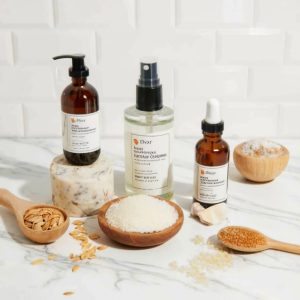
Proper Bathing Techniques for Babies with Eczema
Start by using lukewarm water instead of hot water.
Hot water can strip away the skin’s natural oils and exacerbate dryness.
Lukewarm water is soothing and helps retain the skin’s moisture.
Avoid vigorous scrubbing or using rough washcloths or loofahs.
Instead, gently cleanse the baby’s skin using your hands or a soft cloth.
This prevents the skin from getting further irritated or damaged.
After bathing, gently pat the baby’s skin dry with a soft towel, leaving it slightly damp.
The dampness helps the skin absorb moisture more effectively.
Avoid rubbing the towel vigorously, as this can cause friction and worsen eczema symptoms.
Immediately after drying, apply a moisturizer to lock in the moisture and hydrate the skin.
Look for moisturizers specifically formulated for eczema-prone skin.
These moisturizers should be fragrance-free, hypoallergenic, and contain ingredients that help soothe and protect the skin barrier.
Remember to prioritize gentle cleansing, moisturizing, and protecting their delicate skin to keep it healthy and comfortable.

Choosing the Right Products for Baby Eczema Bathing
Opt for moisturizing wash or soap substitutes that help retain the skin’s moisture and prevent dryness.
Look for fragrance-free products to avoid any potential triggers for eczema flare-ups.
Using moisturizing wash or soap substitutes can provide essential hydration to the skin while cleansing.
These products are formulated to be gentle and moisturizing, helping to replenish the skin’s natural moisture barrier.
They are a great alternative to traditional soaps, which can strip the skin of moisture and exacerbate eczema symptoms.
Fragrances can often irritate sensitive skin and trigger eczema flare-ups.
Therefore, opting for fragrance-free products is highly recommended.
Fragrance-free products are free from added synthetic fragrances, reducing the risk of skin irritation and allergic reactions.
Mild cleansers designed for sensitive skin are specifically formulated to be gentle and non-irritating.
These cleansers help cleanse the skin without stripping away its natural oils, making them suitable for babies with eczema.
Look for products that are labeled as mild or hypoallergenic, as they are less likely to cause irritation or discomfort.
When selecting products for your baby’s eczema bathing routine, it is crucial to read the labels and choose those that prioritize moisturizing properties, are fragrance-free, and specifically cater to sensitive skin.
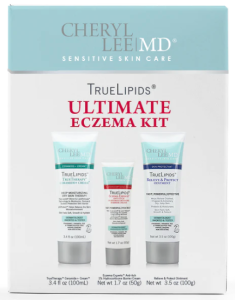
Moisturizing Tips for Babies with Eczema
Moisturizing is a crucial step in baby eczema care. It is important to keep your baby’s skin hydrated and protected to alleviate symptoms and promote healing.
Here are some essential moisturizing tips:
1. Moisturizing Frequency
I recommend moisturizing your baby’s skin at least twice a day.
This helps to lock in moisture and maintain hydration levels throughout the day.
Choose specific times that work well for you and your baby, such as after bath time and before bed.
2. Highly Moisturizing Creams or Ointments
Opt for highly moisturizing creams or ointments instead of lotions.
Creams and ointments have a higher oil content, which helps to retain moisture and provide a more effective barrier against irritants.
Look for products specifically formulated for eczema-prone skin.
3. Ointments vs. Lotions
Ointments are thicker and greasier compared to lotions, making them more suitable for babies with severe dryness or eczema.
They provide a protective layer that seals in moisture and helps soothe irritated skin.
Lotions, on the other hand, have a higher water content and are lighter in texture, making them great for regular moisturizing and daily use.
4. Seasonal Adjustments
Adjust the type of moisturizer based on the season.
During cold weather, use petroleum-based ointments that provide extra hydration and protection against harsh conditions.
In warmer weather, opt for lighter creams that allow the skin to breathe.
Regularly evaluate your baby’s skin needs and make the necessary adjustments.
Remember, every baby’s skin is unique, so it’s important to consult with a healthcare professional for personalized recommendations on suitable moisturizers and how often to apply them.

Additional Eczema Care Tips for Babies
In addition to regular bathing and moisturizing, there are other eczema care tips that can help manage symptoms in babies. Here are some additional steps you can take to provide relief:
Preventing Scratching
Preventing scratching is essential to avoid further skin irritation and potential infections.
Trim your baby’s nails regularly to minimize the damage caused by scratching.
Consider using special mittens to prevent your baby from scratching their skin.
Dressing in Breathable Cotton
When it comes to clothing, dress your baby in breathable cotton garments.
Cotton allows the skin to breathe and helps prevent excessive sweating.
Avoid using tight-fitting outfits that can trap sweat and irritate the skin.
Avoiding Irritants
Be mindful of potential irritants that can worsen eczema symptoms.
Fragrances, detergents, and rough fabrics can trigger flare-ups.
Opt for fragrance-free and mild detergents for washing your baby’s clothes.
Choose soft fabrics that won’t rub against the skin.
Implementing these additional eczema care tips can aid in the management of your baby’s eczema symptoms.
Remember to consult with a healthcare professional for personalized advice and guidance.
Bathing Techniques to Reduce Eczema Flares
The Soak and Seal method is a recommended bathing technique for managing eczema and reducing flares.
Begin by taking a bath using lukewarm water for 5 to 10 minutes, using gentle cleansers or soap substitutes.
After bathing, pat the skin lightly with a towel, leaving it slightly damp, and immediately apply a moisturizer all over the body.
It is important to apply the moisturizer within three minutes to prevent further dryness.
This technique helps to lock in moisture and soothe the skin.
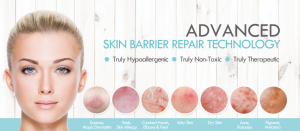
Tips for Bathing and Moisturizing with Eczema
When it comes to bathing and moisturizing with eczema, there are a few key tips to keep in mind.
By following these recommendations, you can help manage your baby’s eczema symptoms and maintain healthy, hydrated skin.
Bathing Frequency:
It is recommended to take at least one bath or shower a day when dealing with eczema.
This daily bathing routine helps cleanse the skin and remove irritants.
However, it’s important to avoid prolonged exposure to water, as it can strip the skin of its natural oils and cause further dryness.
Lukewarm Water:
Use lukewarm water during baths or showers to prevent excessive drying of the skin.
Hot water can be harsh on eczema-prone skin, so opting for lukewarm temperatures is gentler and helps maintain moisture levels.
Gentle Cleansers:
Choose gentle cleansers or soap substitutes specifically designed for sensitive skin.
These products are less likely to irritate the skin and can help retain moisture. Avoid harsh soaps or fragranced products that can trigger eczema flare-ups.
High-Oil Content Moisturizer:
Apply a high-oil content moisturizer to your baby’s skin twice a day.
These moisturizers are formulated to provide long-lasting hydration and protect the skin barrier.
Look for products that contain ingredients like ceramides or shea butter, which help lock in moisture.
Hand Moisturizing:
Moisturize your hands every time they come into contact with water, as frequent handwashing can strip away natural oils.
Keep a travel-sized moisturizer with you to ensure your hands stay hydrated throughout the day.
Bathing and Moisturizing Routine:
Establish a consistent bathing and moisturizing routine for your baby with eczema.
It’s beneficial to schedule these routines at night, just before bed, as it allows the skin to retain the moisture overnight.
This can help soothe dryness and prevent flare-ups.
Bathing and Moisturizing Visualization:
Remember, every baby’s skin is unique, so it may take some trial and error to determine the best bathing and moisturizing practices for your little one.
Be patient and consult with your healthcare professional for personalized advice on managing your baby’s eczema.

Different Bathing Types for Eczema Treatment
When it comes to managing eczema, various bathing options can be incorporated into a treatment plan.
These bathing types can provide relief from symptoms and contribute to overall skin health.
Bath Oil
Adding bath oil to the water can be a beneficial practice for individuals with eczema.
Bath oil helps to moisturize the skin, keeping it hydrated and reducing dryness. This can help alleviate itchiness and promote healing.
Simply add a few drops of bath oil to your bathwater and soak for about 15 minutes.
Baking Soda
Baking soda can be a soothing solution for eczema-related itching.
You can either add baking soda to your bathwater or create a paste by mixing baking soda with water and applying it directly to affected areas.
Baking soda can help reduce inflammation and relieve discomfort, providing temporary relief.
Oatmeal
Oatmeal baths have long been used to soothe itching and inflammation caused by eczema.
You can add colloidal oatmeal to your bathwater to create a calming effect on the skin.
Alternatively, you can apply a paste made of oatmeal and water directly to affected areas to relieve itching and provide hydration.
Salt
Adding salt to your bathwater can provide temporary relief from discomfort during severe eczema flares.
Saltwater baths can help reduce inflammation, soothe the skin, and promote healing.
Soak in the saltwater bath for about 15 minutes to experience the benefits.
Vinegar
Vinegar can be used in the bath or applied as a wet dressing to help kill bacteria on the skin.
It can be particularly beneficial for individuals with eczema who are prone to skin infections.
Adding a cup of vinegar to your bathwater or applying a vinegar-soaked compress to affected areas can help reduce bacteria and minimize the risk of infection.

A Word from HealthyVibe
Actively managing your baby’s eczema involves incorporating daily gentle baths, using specific moisturizers, and consulting with healthcare professionals to tailor care to your baby’s unique needs.
Take proactive steps to minimize scratching, choose skin-friendly clothing, and avoid known irritants.
Through these dedicated efforts, you can effectively soothe and protect your baby’s sensitive skin, contributing to their comfort and well-being.
FAQ
How often should you bath a baby with eczema?
Doctors generally advise giving babies with eczema a bath every day. Daily bathing helps to add moisture to dry skin and cleanse it of irritants.
What are the proper bathing techniques for babies with eczema?
When bathing a baby with eczema, it is essential to use gentle bathing techniques. Use lukewarm water instead of hot water, as hot water can further dry out the skin. Avoid scrubbing the skin with a washcloth or loofah, as this can cause irritation. After bathing, pat the skin dry gently with a towel, leaving it slightly damp, and immediately apply a moisturizer to lock in the moisture. Moisturizing after a bath is crucial to help hydrate the skin and prevent dryness.
How do you choose the right products for baby eczema bathing?
Opt for moisturizing wash or soap substitutes that can help retain the skin’s moisture. Look for fragrance-free and mild cleansers specifically designed for sensitive skin. Avoid using products with strong fragrances or harsh ingredients that can trigger eczema flare-ups.
How frequently should you moisturize a baby with eczema?
It is recommended to moisturize your baby’s skin at least twice a day to improve hydration and protect the skin barrier. Use highly moisturizing creams or ointments instead of lotions, as they provide better moisture retention.
What are some additional eczema care tips for babies?
To prevent scratching, trim your baby’s nails and consider using special mittens. Dress your baby in breathable cotton clothing and avoid tight-fitting outfits that can trap sweat and cause irritation. Furthermore, be mindful of potential irritants such as fragrances, detergents, and rough fabrics that can worsen eczema symptoms.

